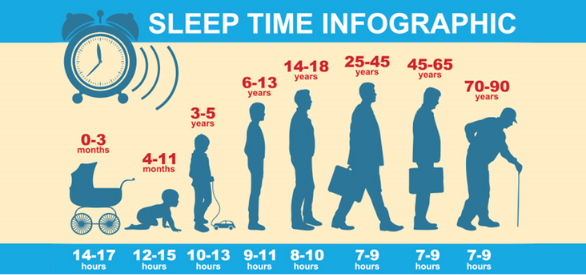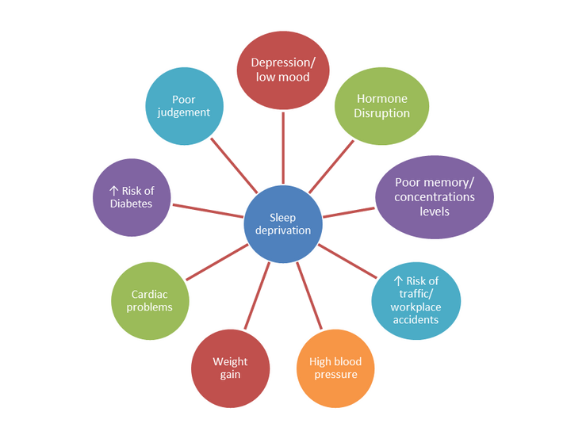28th February 2024
Wake up to sleep!
World Sleep Day – 15 March 2024
Is sleep really that important?
All creatures in the animal kingdom need sleep. Total amounts and the timing of sleep vary by species but we simply cannot survive without it.
Sleep is important to a number of brain functions, including how nerve cells (neurons) communicate with each other. In fact, your brain and body stay remarkably active while you sleep. Recent findings suggest that sleep plays a housekeeping role that removes toxins from your brain that build up while you are awake.
We also know that:
- Sleep shortly after learning leads to better memory
- Growth hormone levels increase during sleep
- Reduced sleep can impair your immune response
- Reduced sleep can alter hormone levels that can affect weight and energy usage in the body
How much is enough?

The recommended amount of sleep to achieve optimal health and quality of life varies across the lifespan, with a gradual decrease from birth to older adulthood.
According to the American Academy of Sleep Medicine, adults require between 7 and 9 h of sleep for optimal performance and health. The necessary amounts of sleep will vary widely between individuals and may differ day to day for the same individual based on a number of factors including illness, sleep debt, and physiologic or psychologic stress.
As a general rule, if you wake up tired and spend the day longing for a chance to have a nap, it’s likely that you’re not getting enough sleep.
Sleep deprivation
The cost of all those sleepless nights is more than just bad moods and a lack of focus. When you haven’t slept enough it’s harder for the body to fight off illnesses as sleep deprivation depletes stores of your ‘natural killer cells’. Missing sleep can also put your body on a crash course for chronic disease.

For better sleep practice good sleep hygiene
Sleep hygiene is defined as behaviors that one can do to help promote good sleep using behavioral interventions. Sleep hygiene may sound unimaginative, but it just may be the best way to get the sleep you need in this 24/7 age. There are lots of simple tips for making the sleep of your dreams a nightly reality.
Shift work & sleep
Shift work can put a strain on people’s ability to get enough good quality sleep due to the irregular shift patterns and night shifts they undertake. Most shift workers have been found to sleep one to four hours less than non-shift workers. Research has shown that the error rate during night shift nursing was higher than that of the day shift nursing. Getting enough sleep can be challenging enough at times, but this is magnified for people who work outside of the ‘normal’ working pattern.
Seven ways to deal with tiredness when working the night shift:
- Have a 90 minute nap before a night shift
- Eat small portions more frequently throughout the shift.
- Drink caffeine in moderation.
- Drink plenty of water.
- Keep busy on your shift.
- Have a chat with your team members.
- Stick to a regular sleep routine following night shift.
- Consider using public transport to get home after your shift
- If you drive home stop if you feel sleepy and take a short nap if it is safe to do so
Conclusion
Sleep is an essential component of health and well-being, with significant impacts on physical development, emotional regulation, cognitive performance, and quality of life.
For better quality sleep remember this acronym:
S nooze & wake up at the same time
L ower caffeine
E xercise regularly- but not too close to bedtime!
E xclude mobile phones, laptops & other devices from the bedroom
P repare for tomorrow
Useful resources:
NHS website Fall asleep faster and sleep better – Every Mind Matters – NHS (www.nhs.uk)
Sleep Foundation.org Mastering Sleep Hygiene: Your Path to Quality Sleep | Sleep Foundation
Sleep Foundation.org Tips for Shift Workers: How To Get Better Sleep | Sleep Foundation
Lung Foundation info on OSA https://www.blf.org.uk/support-for-you/osa

